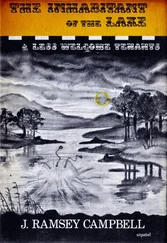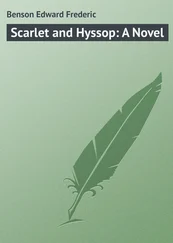"You are too wonderful!" he would say. "How do you find time for everything?"
She rejoined with the apophthegm that made the rounds of Riseholme next day.
"My dear, it is just busy people that have time for everything."
* * *
It might be thought that even such activities as have here been indicated would be enough to occupy anyone so busily that he would positively not have time for more, but such was far from being the case with Mrs Lucas. Just as the painter Rubens amused himself with being the ambassador to the Court of St James's — a sufficient career in itself for most busy men — so Mrs Lucas amused herself, in the intervals of her pursuit of Art for Art's sake, with being not only an ambassador but a monarch. Riseholme might perhaps, according to the crude materialism of maps, be included in the kingdom of Great Britain, but in a more real and inward sense it formed a complete kingdom of its own, and its queen was undoubtedly Mrs Lucas, who ruled it with a secure autocracy pleasant to contemplate at a time when thrones were toppling, and imperial crowns whirling like dead leaves down the autumn winds. The ruler of Riseholme, happier than he of Russia, had no need to fear the finger of Bolshevism writing on the wall, for there was not in the whole of that vat, which seethed so pleasantly with culture, one bubble of revolutionary ferment. Here there was neither poverty nor discontent nor muttered menace of any upheaval: Mrs Lucas, busy and serene, worked harder than any of her subjects, and exercised an autocratic control over a nominal democracy.
Something of the consciousness of her sovereignty was in her mind, as she turned the last hot corner of the road and came in sight of the village street that constituted her kingdom. Indeed it belonged to her, as treasure trove belongs to the Crown, for it was she who had been the first to begin the transformation of this remote Elizabethan village into the palace of culture that was now reared on the spot where ten years ago an agricultural population had led bovine and unilluminated lives in their cottages of grey stone or brick and timber. Before that, while her husband was amassing a fortune, comfortable in amount and respectable in origin, at the Bar, she had merely held up a small dim lamp of culture in Onslow Gardens. But both her ambition and his had been to bask and be busy in artistic realms of their own when the materialistic needs were provided for by sound investments, and so when there were the requisite thousands of pounds in secure securities she had easily persuaded him to buy three of these cottages that stood together in a low two-storied block. Then, by judicious removal of partition-walls, she had, with the aid of a sympathetic architect, transmuted them into a most comfortable dwelling, subsequently building on to them a new wing, that ran at right angles at the back, which was, if anything, a shade more inexorably Elizabethan than the stem onto which it was grafted, for here was situated the famous smoking-parlour, with rushes on the floor, and a dresser ranged with pewter tankards, and leaded lattice-windows of glass so antique that it was practically impossible to see out of them. It had a huge open fireplace framed in oak-beams with a seat on each side of the iron-backed hearth within the chimney, and a genuine spit hung over the middle of the fire. Here, though in the rest of the house she had for the sake of convenience allowed the installation of electric light, there was no such concession made, and sconces on the walls held dim iron lamps, so that only those of the most acute vision were able to read. Even then reading was difficult, for the book-stand on the table contained nothing but a few crabbed black-letter volumes dating from not later than the early seventeenth century, and you had to be in a frantically Elizabethan frame of mind to be at ease there. But Mrs Lucas often spent some of her rare leisure moments in the smoking-parlour, playing on the virginal that stood in the window, or kippering herself in the fumes of the wood-fire as with streaming eyes she deciphered an Elzevir Horace rather late for inclusion under the rule, but an undoubted bargain.
The house stood at the end of the village that was nearest the station, and thus, when the panorama of her kingdom opened before her, she had but a few steps further to go. A yew-hedge, bought entire from a neighboring farm, and transplanted with solid lumps of earth and indignant snails around its roots, separated the small oblong of garden from the road, and cast monstrous shadows of the shapes into which it was cut, across the little lawns inside. Here, as was only right and proper, there was not a flower to be found save such as were mentioned in the plays of Shakespeare; indeed it was called Shakespeare's garden, and the bed that ran below the windows of the dining-room was Ophelia's border, for it consisted solely of those flowers which that distraught maiden distributed to her friends when she should have been in a lunatic asylum. Mrs Lucas often reflected how lucky it was that such institutions were unknown in Elizabeth's day, or that, if known, Shakespeare artistically ignored their existence. Pansies, naturally, formed the chief decoration — though there were some very flourishing plants of rue. Mrs Lucas always wore a little bunch of them when in flower, to inspire her thoughts, and found them wonderfully efficacious. Round the sundial, which was set in the middle of one of the squares of grass between which a path of broken paving-stones led to the front door, was a circular border, now, in July, sadly vacant, for it harboured only the spring-flowers enumerated by Perdita. But the first day every year when Perdita's border put forth its earliest blossom was a delicious anniversary, and the news of it spread like wild-fire through Mrs Lucas's kingdom, and her subjects were very joyful, and came to salute the violet or daffodil, or whatever it was.
The three cottages dexterously transformed into The Hurst, presented a charmingly irregular and picturesque front. Two were of the grey stone of the district and the middle one, to the door of which led the paved path, of brick and timber; latticed windows with stone mullions gave little light to the room within, and certain new windows had been added; these could be detected by the observant eye, for they had a markedly older appearance than the rest. The front door, similarly, seemed as if it must have been made years before the house, the fact being that the one which Mrs Lucas had found there was too dilapidated to be of the slightest service in keeping out wind or wet or undesired callers. She had therefore caused to be constructed an even older one made from the oak-planks of a dismantled barn, and had it studded with large iron nails of antique pattern made by the village blacksmith. He had arranged some of them to look as if they spelled A.D. 1603. Over the door hung an inn-sign, and into the space where once the sign had swung was now inserted a lantern, in which was ensconced, well hidden from view by its patinated glass sides, an electric light. This was one of the necessary concessions to modern convenience, for no lamp nurtured on oil would pierce those genuinely opaque panes, and illuminate the path to the gate. Better to have an electric light than cause your guests to plunge into Perdita's border. By the side of this fortress-door hung a heavy iron bell-pull, ending in a mermaid. When first Mrs Lucas had that installed, it was a bell-pull in the sense that an extremely athletic man could, if he used both hands and planted his feet firmly, cause it to move, so that a huge bronze bell swung in the servants' passage and eventually gave tongue (if the athlete continued pulling) with vibrations so sonorous that the white-wash from the ceiling fell down in flakes. She had therefore made another concession to the frailty of the present generation and the inconveniences of having whitewash falling into salads and puddings on their way to the dining-room, and now at the back of the mermaid's tail was a potent little bone button, coloured black and practically invisible, and thus the bell-pull had been converted into an electric bell-push. In this way visitors could make their advent known without violent exertion, the mermaid lost no visible whit of her Elizabethan virginity, and the spirit of Shakespeare wandering in his garden would not notice any anachronism. He could not in fact, for there was none to notice.
Читать дальше












